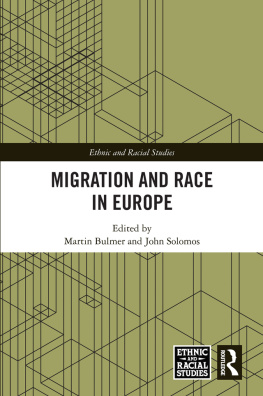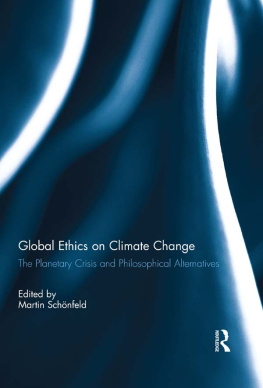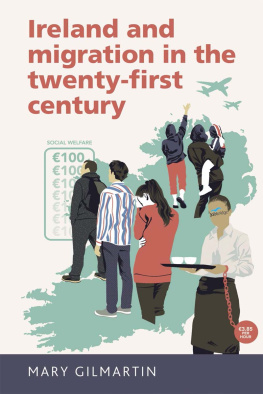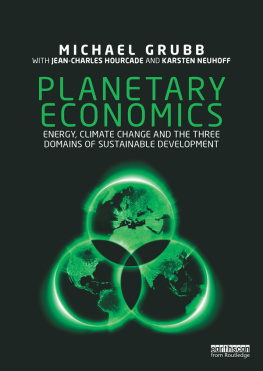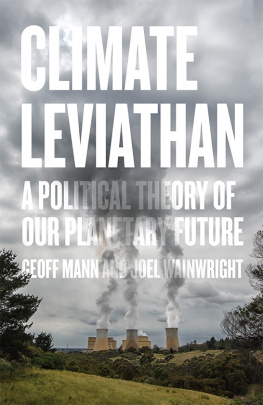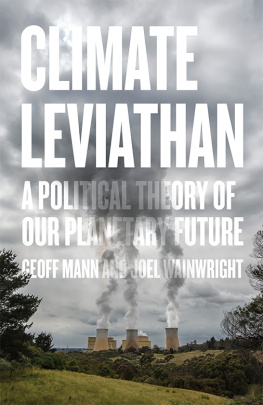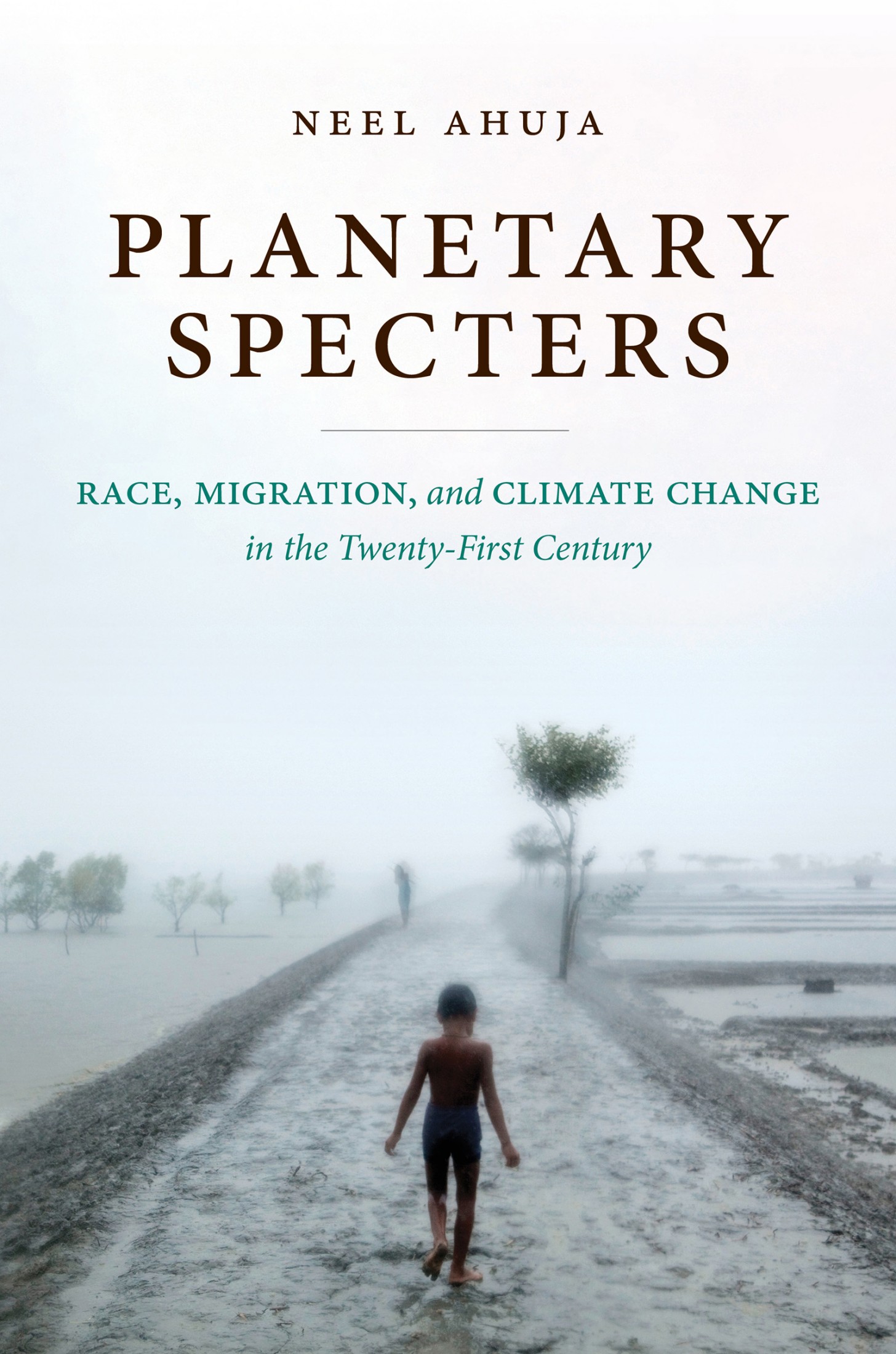
Planetary Specters
Planetary Specters
Race, Migration, and Climate Change in the Twenty-First Century
Neel Ahuja
The University of North Carolina Press CHAPEL HILL
2021 Neel Ahuja
All rights reserved
Set in Merope Basic by Westchester Publishing Services
Manufactured in the United States of America
The University of North Carolina Press has been a member of the Green Press Initiative since 2003.
Library of Congress Cataloging-in-Publication Data available at https://lccn.loc.gov/2021007907
ISBN 978-1-4696-6446-0 (cloth: alk. paper)
ISBN 978-1-4696-6447-7 (pbk.: alk. paper)
ISBN 978-1-4696-6448-4 (ebook)
Cover illustration: Girl walking along a broken embankment in Bangladesh, 2010 ( Jonas Bendiksen/Magnum Photos).
Contents
Illustrations
Planetary Specters
Introduction
The Specter of Insecurity
In public reports on migration crises in the Mediterranean and at the United StatesMexico border from 2015 to 2018, journalists and policy experts portrayed environmental changes as an underlying, hidden cause of mass migration. An article published in the UK newspaper the Guardian on October 30, 2018 is a case in point. Stating that thousands of Central American migrants trudging through Mexico to the United States have been affected by crop failures attributable to climate change, the article claims that the effects of environmental processes upon migration are harder to grasp than the more commonly reported bases of rapid displacement: gang violence and extreme poverty. Displaying a photograph of the 2018 migrant caravan that journeyed from San Pedro Sula, Honduras to Tijuana, Mexico from October 12 to November 15,
Such reporting often includes images and descriptions of the hardships faced by migrants, as well as of the devastation wrought by increased atmospheric carbon concentrations, which accelerates global warming. However, it tends to ignore the language people use to explain political contexts in their home countries and the complexity of migration decisions. Organized largely through the efforts of the transnational immigrant rights group Pueblo Sin Fronteras, the migrant caravans attempted to articulate critiques of U.S. immigration policies, border detention, and the physical and sexual violence to which migrants are routinely subjectedboth in their home countries and on their northward journeys. Although they were viewed in the U.S. media as a sign of the large scale of mass migration (despite the fact that crossings at the southern border had actually dropped over the past two decades), the caravans were organized acts of political protest and mobilization to demonstrate the hypocrisy of U.S. asylum and immigration policies. Ignoring this performance context, the Guardians report suggests that asylum claims that migrants planned to submit at the U.S. border would exclude climate change as a deeper cause for their displacement: Migrants dont often specifically mention climate change as a motivating factor for leaving because the concept is so abstract and long term. By sidelining narratives of imminent danger, including targeted killings faced at home, stories emphasizing the climatic contributions to migration risk supplanting accounts of the political mobilization and legal strategies undertaken by migrants in relation to the different states they encounter on their journeys.
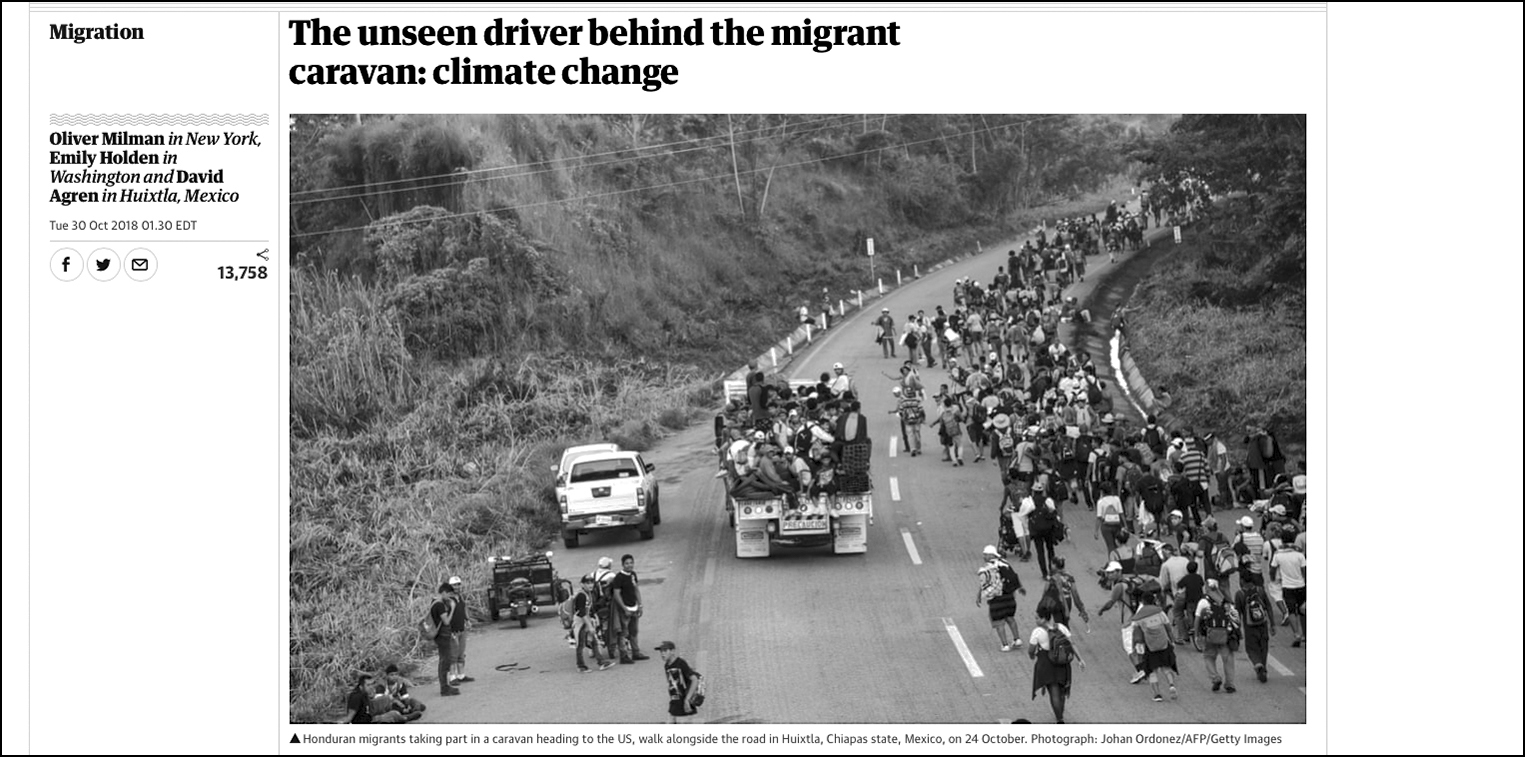
Oliver Milman, Emily Holden, and David Agren, The Unseen Driver behind the Migrant Caravan: Climate Change, Guardian, October 30, 2018, www.theguardian.com/world/2018/oct/30/migrant-caravan-causes-climate-change-central-america.
Rising atmospheric carbon concentrations are, indeed, intensifying ecological processes such as drought, desertification, extreme heat, sea level rise, coastal flooding, crop failure, and particulate pollution, which are destructive to human settlements and livelihoods. In 2017 alone, large flooding events displaced hundreds of thousands of people in locations ranging from Houston to Puerto Rico to Nigeria to India to Bangladesh, demonstrating that both environmental processes and failures of infrastructure to maintain dry land and to assist recovery are increasingly life-and-death matters. However, climate migration discourse as articulated by journalists, security experts, politicians, and nongovernmental organizations (NGOs) often uses the complexity and widely distributed geographic nature of environmental processes to suggest that migrants represent the unwitting blowback of the destructive combustion and release of carbon wastes. Selectively relating interviews with displaced farmers and other rural workers who describe their experiences with the weather, such reporting jumps scale from localized weather to globalized climate, suggesting that environmental change increasingly constitutes the unacknowledged push factor behind migration decisions. The specter of future mass migration due to planetary ecological change thus configures migrants as embodiments of environmental processes. The figures of climate migrant and climate refugee in turn configure the imagery of liberal humanitarian concern for migrants as an expression of the Global Norths overconsumption, evacuating the agency of migrants, removing focus from the proximate political and economic situations in their home contexts, and narrating their actions against the ghostly backdrop of the coming uninhabitability of their places of origin.
Critiquing Climate Migration Discourse
Planetary Specters: Race, Migration, and Climate Change in the Twenty-First Century presents a critique of the transnational discourse on climate migration. As the first book-length study in the humanities focusing on the intersection of race, migration, and climate change, it argues that the figures of the climate migrant and the climate refugee in public media and policy have, over the past decade, been constructed in a manner that obscures how the oil economy, economic inequalities generated by neoliberal economic and development policies, and forms of warfare and imperial intervention have been integrated into massive population movements that reflect capitalist regimes of racial disposability. Going beyond narrower legal and policy debates concerning proposed remedies for migrants affected by weather disasters, the book examines the invention and proliferation of climate migration discourse and imagery worldwide over the past three decades. The construction of multiple migrant crises in public media generates significant discussion of whether environmental factors related to the water cycle and food insecurity are driving migration. In the process, the questions of racism against refugees, changes in capitalist labor flows, and the imperial governance of northern borders are at times displaced in order to describe environmental forces as a sudden and severe generator of human mobility worldwide. In response to such crisis discourse, this book offers a focused study of changes in migration flows in Asia as a way to offer an alternative method for integrating economic, political, and environmental factors and analyzing their connections to forms of racial power. In the process, the book moves from a critique of planet-scale climate refugee discourse toward a more geographically focused study of how the systemic relationships between race and the oil economy have affected environmental destruction and migration flows originating in South and West Asia.
Next page

